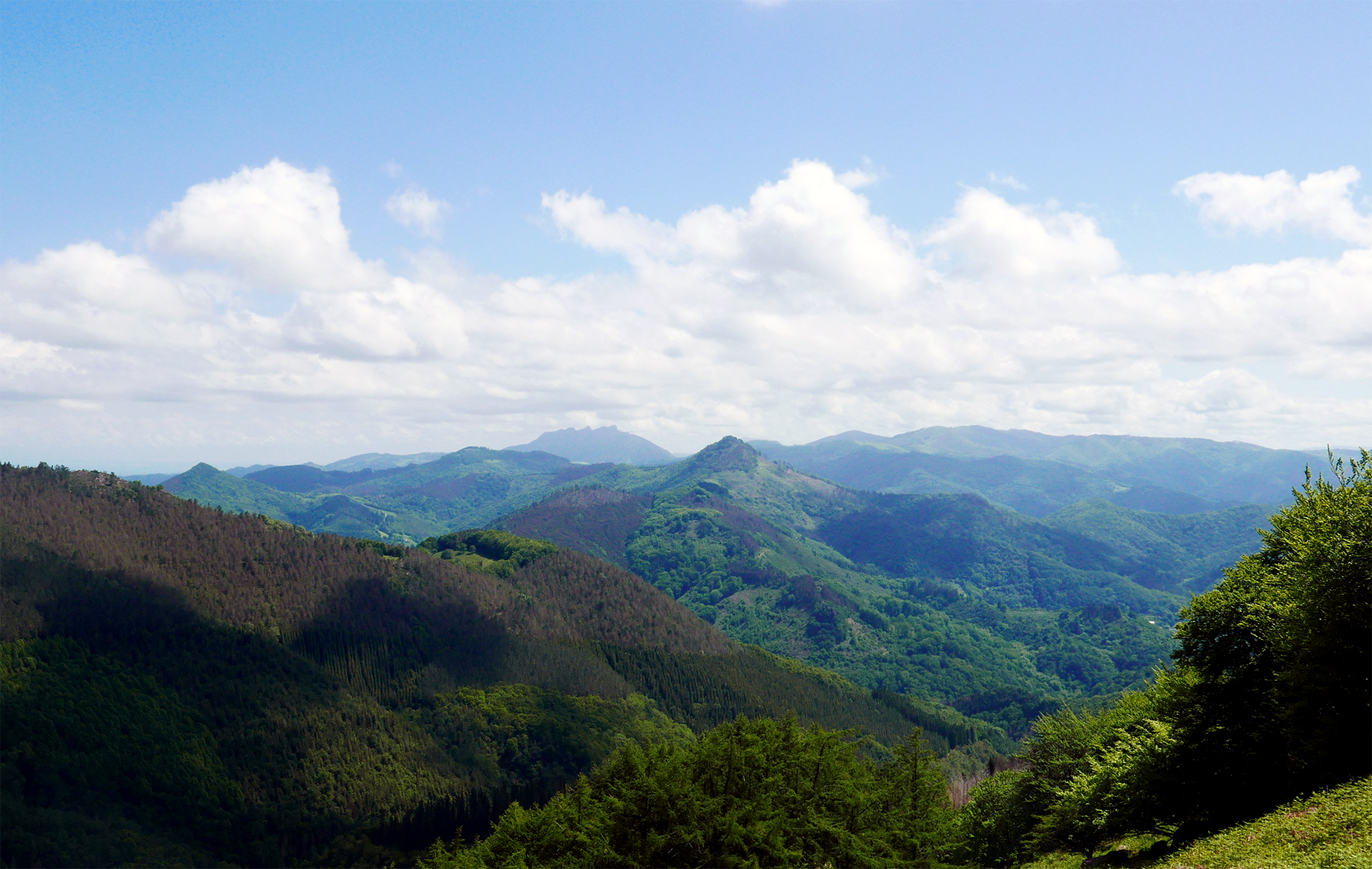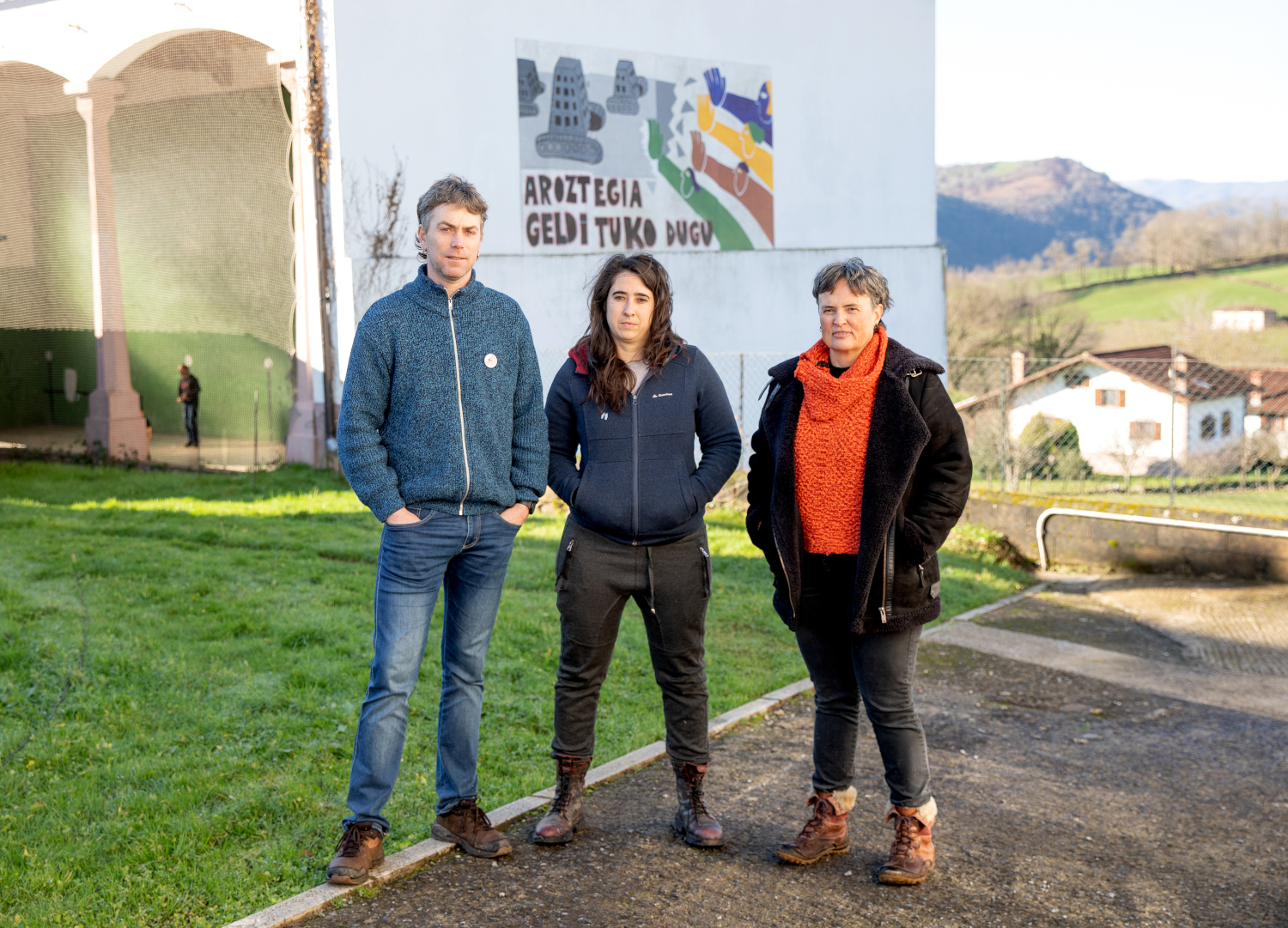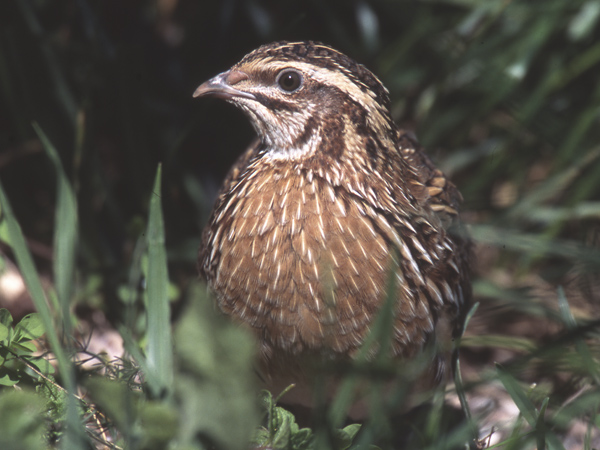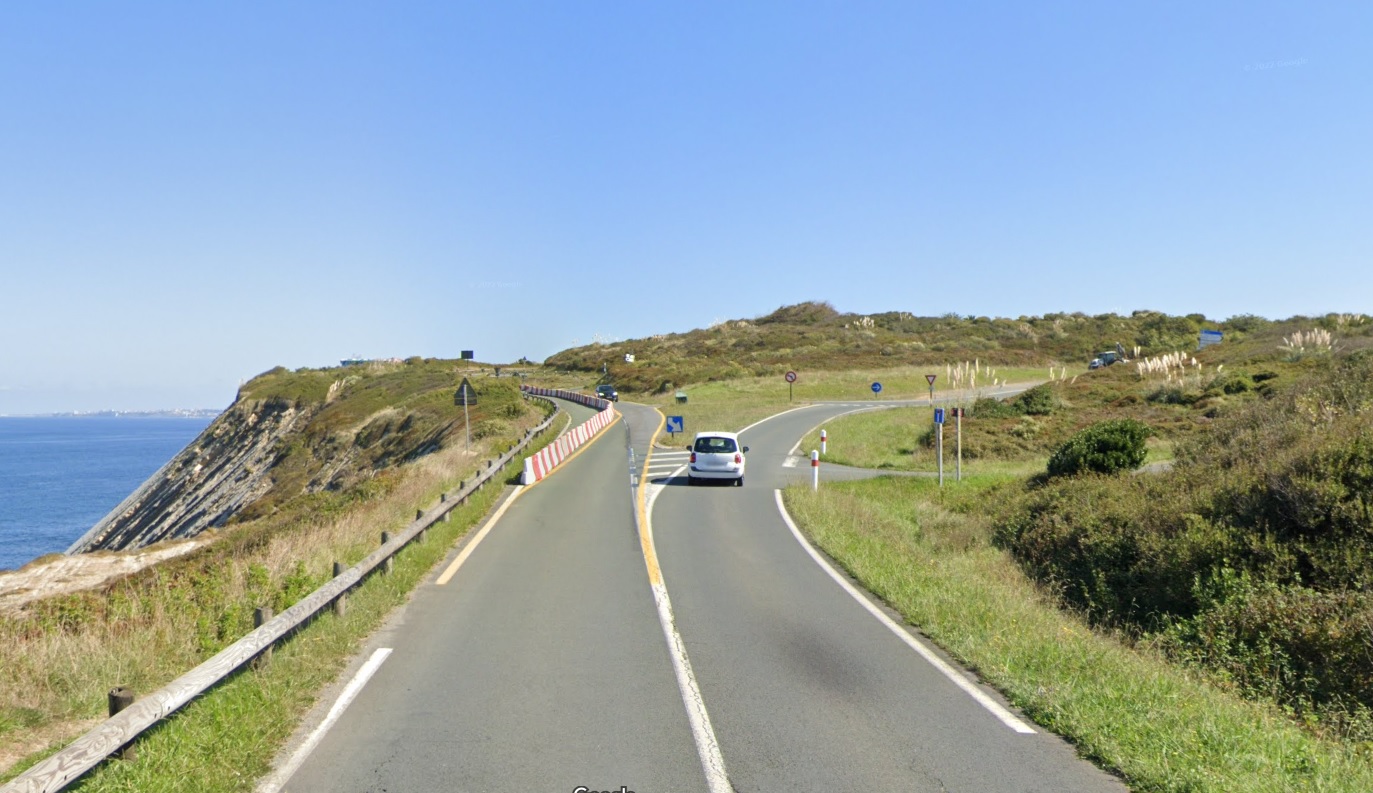A growing movement, step by step, also lands in the Basque Country
- In the context of the Basque Summer University, at the end of June Mirene Begiristain and Marta Barba organized a full day in the self-managed space Sumendi de Vitoria: Ecofeminisms conpos(t) in Euskal Herria. Regarding ecofeminism, the quote is part of the reflection begun two or three years ago in the Basque Country: “It’s a little bit more.” From the collective and the collective, they intend to address the challenge of forming an ecofeminist movement in the Basque Country.
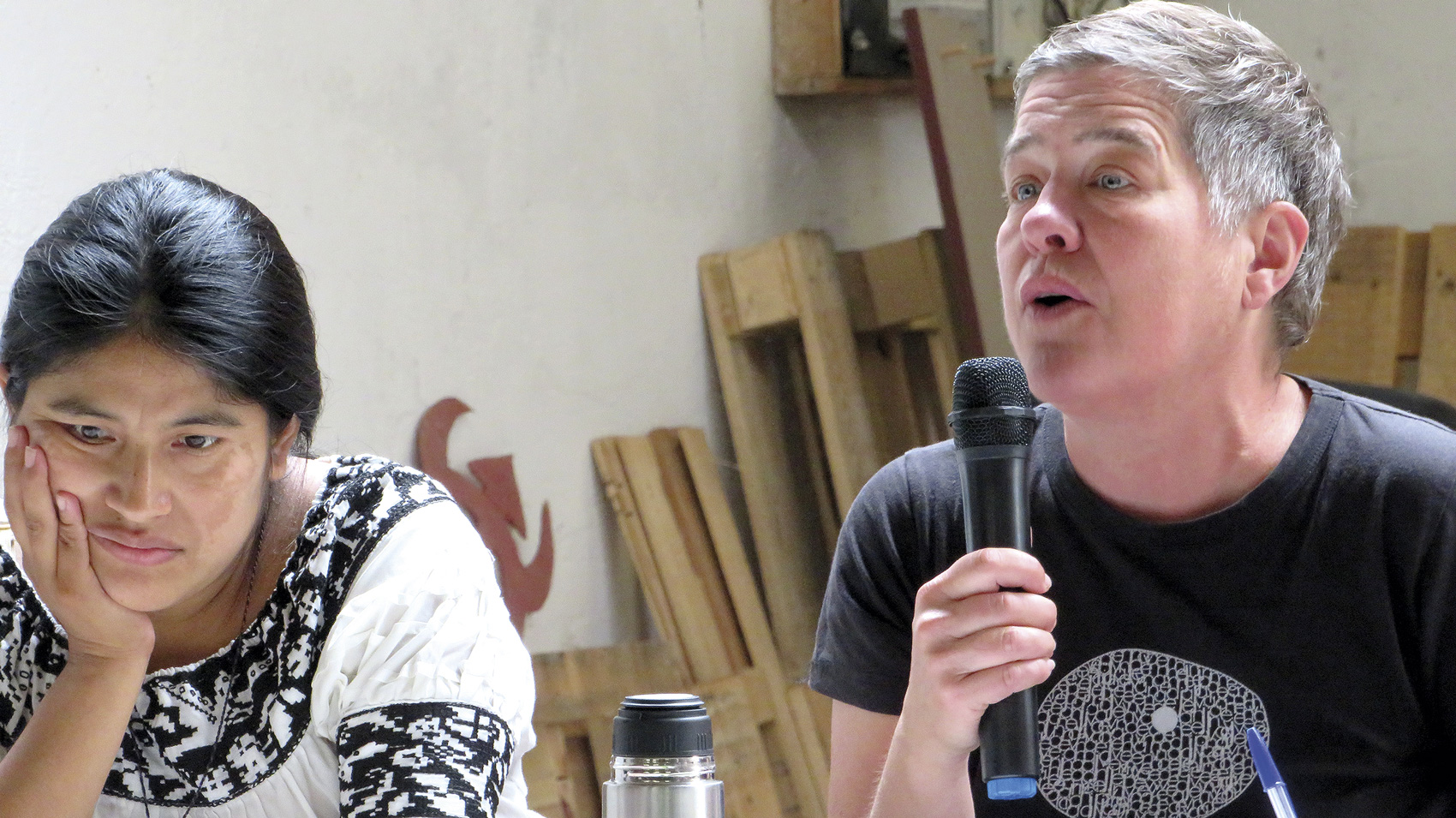
Glasses for better reading the ecosocial crisis
Stitxu Eizagirre
The gathering in Euskal Herria aspired to reflect collectively on the ecofeminist movements in Euskal Herria conpos(t). This movement combines environmentalism with feminism, assuming that it is the same system that advances both nature and women.
Marta Barba acknowledged the group Etxaldeko Emakumeak, "who are the only ones who have made a public proposal in Basque on ecofeminism and who should be fully present in ecofeminism". Mirene Begiristain explained that in the last two years interest in ecofeminism has accelerated in Euskal Herria: two years ago they organised a conference in Usurbil between the EU and Jakin on the ecological crisis, within which a round table on ecofeminism was held and an article by Jakin was published. Subsequently, several sessions were held in Baztan with the Young Women of the Basque Country, an internal work was carried out in Emagine, Elhuyar reflected internally… Begiristain: "In the reading group of the Feminist Anthropology of Donostia we committed ourselves to meet other demands: In their work on the care system in Usurbil they also intend to address the line of ecofeminism, in the Hernani Feminist Square, the union STEILAS is trying to approach ecofeminism from an educational point of view and has published a material…".
Starting to respond to the demands of these social agents, they have felt the need to "open, expand, collectivize voices" and the day of Ecofeminisms conpos(t) has been a tool for this: "To think among all how we want to build ecofeminism from Euskal Herria, how we can land in the different movements and spaces that we walk." They also recalled another meeting held in March at the level of Euskal Herria, organized by the feminist group of Aramaio, in which a rural vision, agroecofeminism, was incorporated into ecofeminism.
As ecofeminism is making its way in Euskal Herria, the organizers assured that still few people identify themselves as ecofeminists, that there are few referents in Euskera and that no one sees themselves as an expert or legitimized to talk about ecofeminism. Esti Redondo was mentioned throughout the day, because from practice a theoretical discourse is being generated and again Etxaldeko Emakumeak because "collectively a discourse can be created without always using the names of the individuals". Fortunately, in the short term we will be able to re-listen and read in Basque about ecofeminism: members of the environmental and feminist movement will meet at the Akanpadan Feminist Small Revolutions Land Defence Workshop to be held in Izarra from 19 to 23 July; and Begiristain and Barba announced the intention to publish a book collectively. Regarding ecofeminism, Isabel Hernández Castro, a member of Maya K'iche and agronomist residing in Euskal Herria, and Marta Luxan, a specialist in demography and member of the feminist movement, looked at what has been done so far. They talked about practices and thoughts.
The house of all beings and power relations within the home
Hernandez provided the following keys to understanding ecofeminism: "We have to go to the root of the word ecology, that place or home where we live. But which house do we refer to? We cannot understand the house as an empty physical space, but we must also include the relationships that are established in that space, both with living beings (animals, for example), and with the beings we call “inanimate” (rivers...), which also produce us life, because they have their function in the ecosystem and we cannot live without them. And the task of feminism would be to analyze the power relations at home."
.jpg)
What fights and practices here have been ecofeminists?
One of the intentions of these days was to complete, among all, the roots or genealogy of ecofeminism in the Basque Country. Luxan mentioned: "The first thing that comes to mind is the sabotage that was done in the fight against Itoiz: sabotage the machines that women made, knowing that the police didn't go through the head that women could do. On the other hand, the work being done by Etxaldeko Emakumeak comes to mind. And also the movement against the VAT, which was a space to imagine how we wanted to live for ourselves. There are things that weren't like we wanted, there were lots of power relationships, ways to look at the organization ... We created a group called Joxeparen Sardea, who never did anything in public but made proposals from a feminist perspective inwards and put several issues on the table. When it comes to genealogy, we should look at what the people who had been on the antinuclear committees did, because they come from the head that we were going with the parents to the initiatives against Lemoiz and the conversations that we had there: I think there was a ray that could be associated with ecofeminism."
Hernández reminds us: "Making auzolans is good practice. In their day, the role of women was more to feed those who came home to the auzolan. But I think you can continue to do it as a practice, sharing papers and cooking work. When talking about ecofeminism for me, the theme of spirituality is important. Between the global North and the global South there are many unhealed wounds that we can no longer talk about ecofeminism. Complete not only with the population that has penetrated oppression, but above all with the peoples of Abya Yala [the way in which the countries of origin declare America]. The other side has a historical responsibility and we have to build relationships among all to make this composition, and that takes time, not in a single day. When talking about spirituality here folklorizes: 'How the people of origin do it, we copy it and pay a course to learn their own.' This should not be the case, here are practices that have been lost over time. Why not value the fire of Santa Águeda or San Juan? Why not give the importance they had at the time? ". In this theme of spirituality, several knots were discovered: the burden of conscience of the Basque past on the Global South and the retroaction of Christianity, remembered by one of the public. But this audience member thanked Hernández for the spirituality issue: "We have a big gap in recognition of the past."
Glasses to read today's problems
Hernández explained that environmental and feminist conflicts are linked to migration: many people are forced to leave the territory, either because they have limited access to natural resources or because transnational companies expel them from their territory. "The current system determines who can survive in a territory and who cannot. Among those who have this practice there are also Basque companies". These people take migration as a route and the Spanish State forces them to live three years irregularly through the Aliens Act. In this need for survival, migrated women are consolidated as domestic caregivers and their exploitation is enormous: "24 hours 6 days a week. It's the slavery of the 21st century." Luxan added: "One of the people's goals must be to fight the Aliens Act and the new enslavement, looking at the things that happen inside our homes and discussing with our relatives."
In Luxury he also spoke of overpopulation: "When we analyze it as an environmental problem, we tend to talk about the numbers of overpopulation and not about other issues such as the consumption of people born in each country. There is a very dichotomous speech, it seems that in some places there are plenty of people and in another one. If that is the problem, it has an easy solution, expanding borders. I believe that ecofeminism can help us to look at these issues from a critical perspective. It is clear that this planet cannot sustain the life we have some. Ecofeminist discourses and practices are necessary to address the situation we have but combined, not environmentalism or feminism without the other."
Movement to be composed of all
Jenofa Berhokoirigoin
In the second round they looked to the future with the intention of taking a step forward in the formation of the ecofeminist movement in the Basque Country. As it is represented as movement, people from different areas of the community joined the activity. Evidently, the challenge was seen from the environmental and feminist movement, but not only from urbanism, from the countryside, from Euskalgintza, from the law, from the energy sector and from journalism, which also had an anti-specialist vision, but which Junkal Arruti Tena was finally unable to attend. Ainara Kaltzakorta Urresti, by Sukar Horia Horia, Maite Zabala Idigoras, architect of the Feminist Constitution of Bilgune Feminist, Miren Vives Urbieta, Arantza Arrien Goitiandia, Lorea Agirre Dorronsoro, Amanda Dias Vrone Because ecofeminism is a set of reflections and practices that must be integrated in all areas, and so, it would revolutionize the system, or – “that scandalous thing”, reaffirming the words of feminist economist Amaia Pérez Orozco. First of all, the environmentalism and feminism that are carried on too many occasions should be fed and complemented each other, incorporating readings of assimilation to the practices and reflections themselves. With this idea, Kaltzakorta spread his reflection. Many reflections, questions and goals were shared:
“One of the main contributions of ecofeminism is
to make visible the lives that underlie our energy
model” Estitxu Villamor
Collective
"Personal alternatives are not sustainable, we have to form group alternatives," says Arantza Arrieta. With this basis as a guarantee, Lorea Agirre influenced the need to establish alliances and link different local struggles, placing the intersectional approach as a central element. Here he recalled that Euskera has space, because language is not a mere instrument of communication: "It is an instrument that provokes the emergence of power relations and is also a resource to build society, an important tool to make ourselves".
Of decoloniality
"One of the main contributions of ecofeminism is to make visible the lives that underlie our energy model," according to Estitxu Villamor's note. In other words, the destruction that may result from the Western escalation on the other side of the world, particularly in the Global South. We must look at our consumption model from a decolonal perspective: "We continue to consume the same and outsource damage. A privilege is to stay in us with that model of life. A privilege is to fight big projects and get them stopped, they can't stop them in other territories." Taking a safe space to extend uncomfortable questions, he opened: How are we going to reduce consumption? Who is it? The popular movement? Politicians?
In the same vein, Jenofa Berhokoirigoin spoke, demonstrating that the current political and financial institutions guide the ecological transition as "totally colonial" and that we have deceleration: "Our responsibility is to elaborate and disseminate the proposal of deceleration, and that in a positive way and always from pleasure".
From Earth
The struggles for land and the links to land had a wide mention in the days, placing the rural environment at the center of the movement. A rural area with farmers, farmers and foresters is considered essential, and of course a rural area that is also ahead of feminism.
Amanda Dias looks at the problem of the control and exploitation of the Earth from the right and ecofeminist perspective: "The control and concentration of the land are the basis of the heteropatriarchal model, the capitalist, the colonial and the eco-communion", leaving good in the hands of cis men. In this sense, the land kingdom does not represent the victory of the struggles against heteronorma and for agrofeminism.
Ecofeminism is a movement that takes into account the diversity of this Earth: "It will be sustainable or not, it will ensure a dignified life for all people, animals, plants and beings until it dies," says Arrien. Because ecofeminism is a vision that takes into account all power relations, including anthropocentrism.
Respecting all life(s)
The life of others and one's own, how not. Do not believe that our life in the frantic model is easy to reconcile respect and respect for all and life. Calls for "humility" and "recognition," according to Maite Zabala: "Life commands, we can't control everything... We have to recognize that both nature and the body have their trajectories." This implies a change of attitude: connecting our body – not only to mind, to reason – paying attention to the cycles of nature and body; politicizing the intimate; recovering or inventing habits and rituals; talking about pleasure...
Look at Vives also addressed the importance of putting lives at the center. "We have to recover the concept of proximity and from urbanism we would like to say that neighborhoods and towns are the basic units and not the cities". Especially because the city robs us of the time it is "an important personal resource." He also spoke of time, and pointed out that ecofeminism can bring about the change of rhythm that the environmental movement should entail: "Because of the climate emergency, there is often talk about the immediacy of the problem and the changes, but the sustainable future requires different rhythms."
Vives warned that the temporary space of urbanism is long: the city today thought and drawn will develop in 10-15-20 years. Unfortunately, cities are not represented either from environmentalism or from feminism. From ecofeminism, the architect suggests that imagination be put in motion and associated with the exercise of imagining which cities we want to build a city of tomorrow that makes life possible: "How do we want to live in our neighborhood? All lives are different, what spaces need to be created to respond to all needs and needs? Are multiple lives possible when all houses and streets are equal? Why are we okay on one street and not on the other? Have we thought about it? ".
Because ecofeminism is a proposal that goes against homogenisation. Because monoculture is always a disease, either for biodiversity or for cultures.
Emakume bakoitzaren errelatotik abiatuta, lurrari eta elikadurari buruzko jakituria kolektibizatu eta sukaldeko iruditegia irauli nahi ditu Ziminttere proiektuak, mahai baten bueltan, sukaldean bertan eta elikagaiak eskutan darabiltzaten bitartean.
Ibon galdezka etorri zait Bizibaratzea.eus webguneko kontsultategira. Uda aurre horretan artoa (Zea mays) eta baba gorria (Phaseolus vulgaris) erein nahi ditu. “Arto” hitza grekotik dator eta oinarrizko jakia esan nahi du, artoa = ogia; arto edo panizo edo mileka... [+]
Nekazal eremu lehor baten erdian ageri da putzua. Txikia da tamainaz, eta ez oso sakona. Egunak dira euririk egiten ez duela, baina oasi txiki honek oraindik ere aurretik bildutako urari eusten dio. Gauak eremua irentsi du eta isiltasunaren erdian kantu bakarti bat entzun da... [+]
Zuhaitza esnatzear dago, kimuak ageri dira adarretan. Gutxi falta da loraldirako, laster aro berria hasiko du, indarberrituta.
Eskoziako Lur Garaietara otsoak itzularazteak basoak bere onera ekartzen lagunduko lukeela adierazi dute Leeds unibertsitateko ikertzaileek.. Horrek, era berean, klima-larrialdiari aurre egiteko balioko lukeela baieztatu dute, basoek atmosferako karbono-dioxidoa xurgatuko... [+]
Ilbeltzeko igande goiz batez jo dugu Baztanera. Eguzkiak oraindik ez du Lekarozko plaza argitu; bertan elkartu gara Garbiñe Elizegi Narbarte, Itziar Torres Letona eta Ernesto Prat Urzainkirekin. Itzaletan hotz egiten du eta umorez goxatu dugu lehen agurra, hogei urtean... [+]
"(The purpose of the Oion Plenary) is clear, to legitimize by law the energy megaprojects with significant irregularities in the processing"
Last Wednesday we had a hard and unpleasant day, not only for Labraza, but also for all the towns where we are threatened by a wind,... [+]









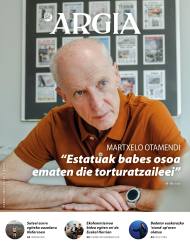



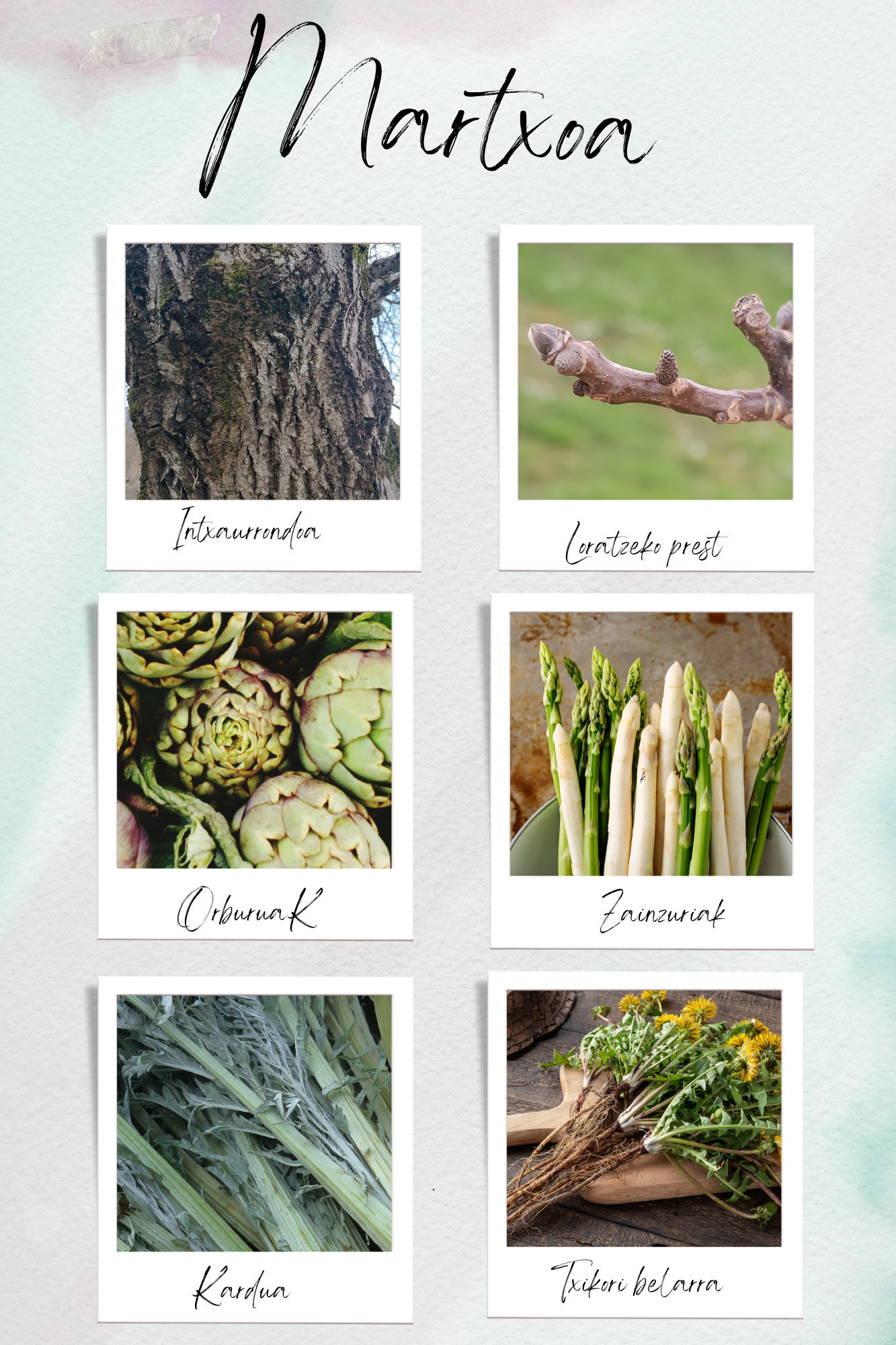
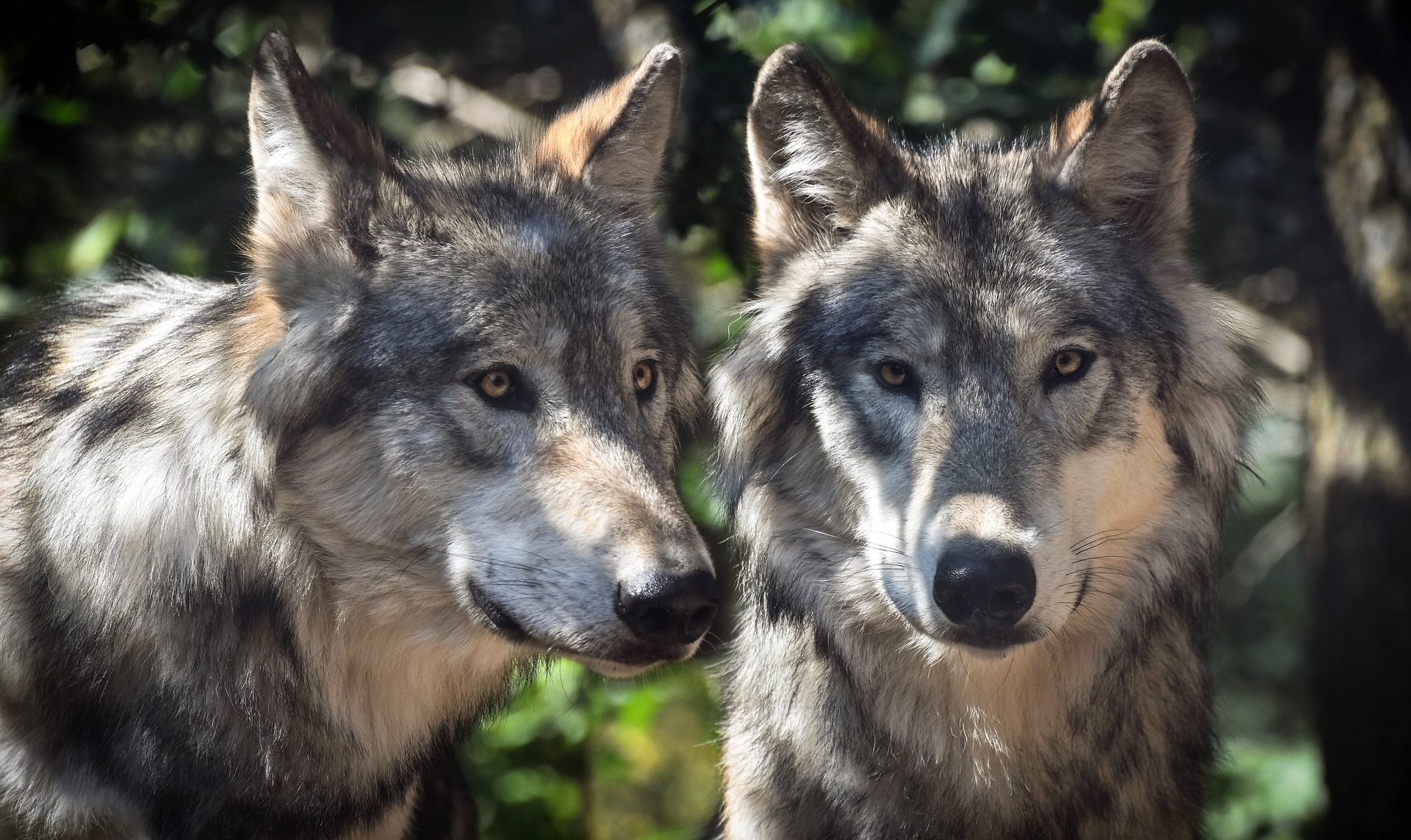
_Glaciar.png)
